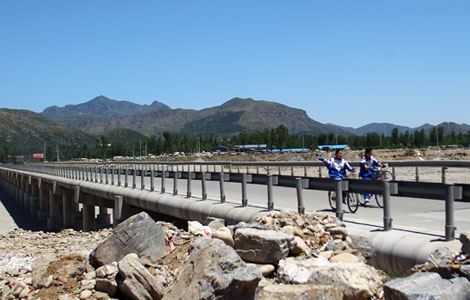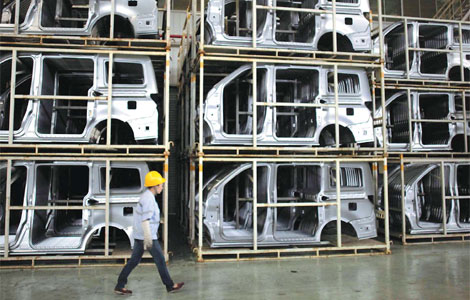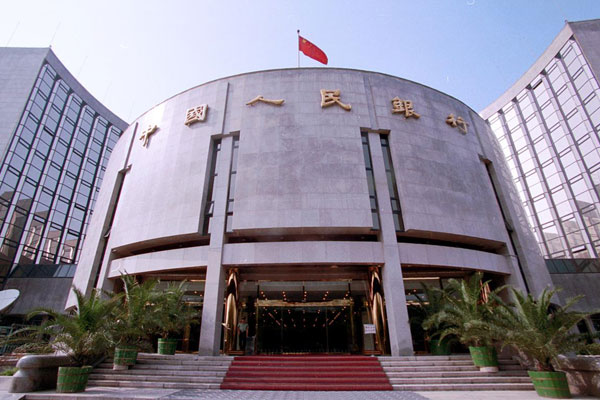Economists puzzled by state of economy
Updated: 2013-06-17 02:49
By CHEN JIA (China Daily)
|
|||||||||||
There has been no sign of inflation spiraling out of control so far this year. In April, consumer prices increased by 2.4 percent from a year earlier. That was slightly higher than March‘s 2.1 percent but still much lower than the year‘s target of 3.5 percent.
The flat inflation figures are taken to mean by economists that policy makers may not aggressively tighten money supply in the near future.
Because of the increase in interest rate liberalization, money supply may not be used as the main tool in deciding the whole monetary policy mixture, but there will be more of a focus on interest rates, as the US Federal Reserve and the Japanese Bank undertake currently, Ji said. ”The monetary policy making process is in transition.”
Money supply is dependent on monetary multipliers and base money. Base money is the total of domestic credit plus foreign exchange reserves.
When the total of social financing jumped to a historical high by 160 percent from a year earlier in January and 58.2 percent in the first quarter, fixed-asset investment growth slightly increased to 21.2 percent in January and February, and then slowed to 20.9 percent in March.
Beyond all expectations, GDP growth during January to March slowed to 7.7 percent year-on-year from 7.9 percent in the last quarter of 2012.
It was a different picture four years earlier. Growth in total social financing picked up to 114 percent in the first quarter of 2009 and 121 percent in the second quarter, from 26.6 percent in the last three months of 2008. It led to a boost in fixed asset investment, which increased 28.6 percent in the first quarter from 26.8 percent in the fourth quarter in 2008.
In the same period, the official Purchasing Managers‘ Index rose to 52.4 from 41.2, indicating a fast recovery in manufacturing production.
That provided evidence that the marginal effect of monetary easing on the economy is decreasing compared with 2009, after the global financial tsunami.
”We believe a large part of the new credit supply in the first quarter did not go into the real economy,” said Zhang Zhiwei, chief economist in China at Nomura Securities Co.
It is partly because the underlying demand for investment is weak, he added.
”The overcapacity problem in the manufacturing industry has been exacerbated by aggressive policy easing in 2009 and 2012.”
Liu Ligang, chief Chinese economist with the ANZ bank group, said: ”Overly loose credit is likely to exacerbate overcapacity in factories. Economic growth cannot rely on monetary easing any more.”
Related Stories
Reduce money supply 2013-02-07 07:28
China's broad money supply up 14.1% 2012-11-13 09:18
Surprise money supply growth 2012-04-24 08:15
Monetary easing no help in long term 2013-05-20 07:25
PBOC to maintain prudent monetary policy 2013-05-09 22:57
US Fed sticks to current monetary easing 2013-03-21 02:19
Today's Top News
Snowden approaches Iceland for asylum
PBOC signals no policy loosening
France to reinforce Chinese safety
'Thorough cleanup' of undesirable styles
FTA will help ease tensions
Baby formula industry to consolidate
'Legal weapons' against pollution
Dolphin dies, swimmers blamed
Hot Topics
Lunar probe , China growth forecasts, Emission rules get tougher, China seen through 'colored lens', International board,
Editor's Picks

|

|

|

|

|

|






